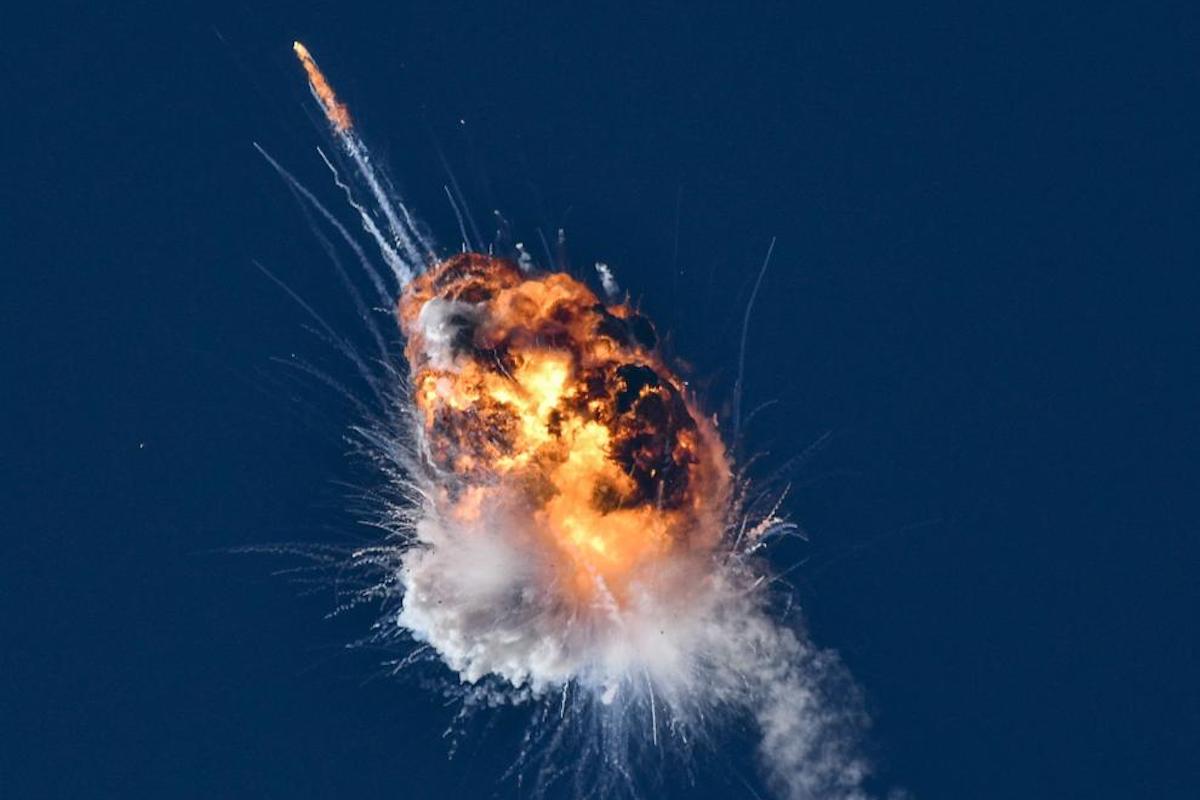Rocket Launch Explodes in Firefly Aerospace’s First Test Mission at Vandenberg
Space Force Base Officials Urge Caution Over Potential Debris in the Area

Just over two minutes after liftoff from Vandenberg Space Force Base on Thursday, September 2, Firefly Aerospace’s Alpha rocket exploded, bringing its first test flight to a fiery and abrupt end.
In a statement released by Firefly — which is one of the most recent in a wave of New Space industry companies launching medium-level rockets to space — the Alpha rocket experienced an “anomaly resulting in an early end of the mission.” The company added that although the mission was terminated, there was much that was successful about the launch.
“While we did not meet all of our mission objectives, we did achieve a number of them: successful first-stage ignition, liftoff of the pad, progression to supersonic speed, and we obtained a substantial amount of flight data.”
Witnesses who could see the event said that after initially being delayed an hour, the 95-foot rocket launched at 6:59 p.m. and ascended for two minutes before exploding into a fireball, leaving a trail of smoke behind.
Sign up for Indy Today to receive fresh news from Independent.com, in your inbox, every morning.
A statement was released from the Vandenberg Space Force Base that urged caution in the area due to potential debris from the rocket. “All recreational facilities, including beaches on-base that were closed for the launch will remain closed until further notice due to the ongoing investigation.”
A team of investigators has determined that any debris from the rocket should be considered unsafe, the statement said, and all those that see or suspect debris should stay “at least 50 feet away” and report any findings to the Firefly Aerospace hotline at (805) 605-2734.
There were no injuries associated with the anomaly, according to both Firefly and Vandenberg officials, and though it is too early to know the root cause, both are working with the Federal Aviation Administration to investigate further.
The $15 million mission, which is just the first of many aerospace projects already in the works at Firefly — including two more rockets, a “space utility vehicle,” and a lunar lander — was intended to reach a low Earth orbit and is not the first failed mission in the New Space sector. Three of Firefly’s competitors in the small-satellite business — Rocket Lab, Virgin Orbit, and Astra — also failed on their first orbital attempts.
Support the Santa Barbara Independent through a long-term or a single contribution.



